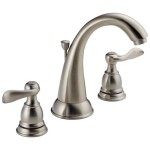Are Bathroom Fans Required By Code in Massachusetts?
The question of whether bathroom fans are required by code in Massachusetts is a common one for homeowners, builders, and renovators. The answer, however, is not a simple yes or no. While the Massachusetts State Building Code, or 780 CMR, does not explicitly mandate the installation of bathroom exhaust fans in all cases, it sets forth regulations that effectively require them in most situations. This article will delve into the specific requirements outlined in the 780 CMR and provide a comprehensive understanding of the necessary conditions for bathroom fan installation in Massachusetts.
Considerations for Bathroom Fans
The 780 CMR does not explicitly require a bathroom fan in every bathroom. However, it mandates that every bathroom must be adequately ventilated. This implies that a bathroom fan is generally necessary to achieve proper ventilation, especially in bathrooms without windows. The code essentially allows for alternative ventilation methods but emphasizes the importance of proper air circulation.
The specific requirements for bathroom ventilation depend on the layout and function of the space. For instance, if a bathroom has a window that can be opened and is strategically positioned to provide adequate ventilation, a fan may not be strictly required. However, even in such cases, a fan is highly recommended to improve air quality, reduce humidity, and prevent mold growth.
The Role of Building Codes in Ventilation
Building codes play a crucial role in ensuring the safety and functionality of structures. They are designed to establish minimum standards for elements like ventilation, plumbing, and electrical systems. The 780 CMR, which governs building codes in Massachusetts, sets forth specific requirements for ventilation to address issues such as moisture buildup, odor control, and the prevention of mold and mildew.
Ventilation is particularly critical in bathrooms because they are inherently susceptible to moisture buildup from showering, bathing, and other activities. Inadequate ventilation can lead to a number of problems, including:
- Mold and Mildew Growth: Damp environments provide ideal breeding grounds for mold and mildew, which can pose health risks, particularly for individuals with allergies or respiratory conditions.
- Musty Odors: Moisture trapped in the bathroom can create unpleasant odors, making the space uncomfortable and unhygienic.
- Structural Damage: Prolonged moisture buildup can damage building materials, leading to rotting wood, peeling paint, and other structural problems.
By requiring adequate ventilation, including the use of bathroom fans in most cases, the 780 CMR aims to mitigate these issues and promote a healthy and comfortable living environment.
Understanding the Specific Requirements
While the 780 CMR doesn't explicitly require a bathroom fan, it specifies certain conditions that effectively mandate their installation:
- Bathrooms Without Windows: If a bathroom lacks natural ventilation through a window, a fan is generally necessary to meet the code's ventilation requirements.
- Bathrooms with Specific Features: Some bathrooms may require fans even if they have windows. For example, bathrooms with a bathtub or shower must have a fan to remove moisture effectively.
- Local Building Codes: It's important to note that individual municipalities may have additional building codes or regulations that apply to bathroom ventilation. Homeowners should check with their local building department to ensure compliance with all applicable regulations.
In addition to meeting the code requirements, installing a bathroom fan offers numerous benefits, including:
- Improved Air Quality: Fans remove moisture and odors, improving air quality and creating a fresher, more pleasant environment.
- Reduced Mold Risk: By reducing moisture buildup, fans significantly minimize the risk of mold and mildew growth, promoting a healthier living space.
- Prevention of Structural Damage: Effective ventilation helps prevent moisture-related damage to building materials, extending the lifespan of your home.
Residential Ventilation System Requirements

2024 State Sanitary Code Changes Bring 10 New Requirements Including Landlord Availability Masslandlords Net

Learn Rules For Bathroom Design And Code Fix Com

Code Requirement For Bathroom Vent Location Exhaust Checkthishouse

Bathroom Branch Circuits In The 2024 Nec Jade Learning

Dph Proposes Changes To State Sanitary Code Massachusetts Real Estate Law Blog

3 Bathroom Exhaust Fan Venting Options Codes

Stretch Energy Code Q A Home Raters

How To Install A Bathroom Exhaust Fan

Does Your Bathroom Need An Exhaust Fan Mr Rooter
Related Posts







